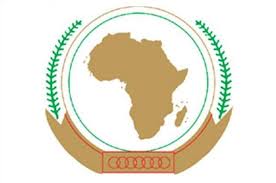63rd Ordinary session of the African Commission on Human and Peoples’ Rights
Item 3: Human Rights Situation in Africa
Madame Chairperson, distinguished Commissioners, State Delegates, representatives of National Human Rights Institutions and Non-Governmental Organisations:
The human rights situation in the East and Horn of Africa sub region remains critical, requiring stronger interventions to guarantee the effective protection of the rights of its peoples. The need for an autonomous and strong African Commission on Human and Peoples’ Rights cannot be more emphasized. The Commission provides an avenue for redress for rights violations on a continent where national mechanisms are often ineffective. We are concerned by aspects of Executive Council decision 1015 that are direct attacks on the Commissions’ autonomy. Only with a strong institution can African Union member states be held accountable for human rights violations.
Burundi remains mired in a political crisis that has decimated the once vibrant civil society and dispersed human rights defenders. Germain Rukuki is illegally detained and unlawfully convicted for 32 years in prison, an unprecedented sentence for a human rights defender in Burundi. More recently, non-governmental organisations (NGOs) were suspended for three months for allegedly violating the January 2017 NGO Law. NGOs play a crucial watchdog role, monitoring states’ actions and omissions. We remain concerned by the phenomenon of enforced disappearances enabled by the practices of arbitrary arrest and detention and of concealing bodies, and by the environment of impunity prevailing in the country.
Eritrea’s government remains one of the most repressive on the continent. The same efforts towards restoring peace in the Horn of Africa should also be employed to observe the rights of the Eritrean people. We are concerned by the detention of Eritrean Finance Minister Berhane Abrehe whose crime was dissent. He recently released a book criticising the Eritrean president and called on young Eritreans to rise up for democratic change.
In South Sudan the signing of a new peace deal presents a chance to end the civil strife that has decimated Africa’s youngest nation. However, for this to become a reality, its provisions must be adhered to and the ceasefire must be respected. The Hybrid Court must be set up to ensure accountability for the violations committed since 2013 when the war broke out.
The gravity of Sudan’s human rights situation is not proportionate to the attention accorded to it by the international community. The National Security Services continue to carry out torture with impunity. Women struggle to realise their rights in a highly patriarchal society determined to completely close them out of the public sphere.
While we welcome progressive reforms under the new leadership in Ethiopia, there remain unresolved issues such as justice and accountability for human rights violations committed against citizens during mass demonstrations that characterised preceding years.
Tanzania, once considered one of the most politically stable countries in the region, continues to clampdown on civic space with the enforcement of new draconian legislation meant to stifle independent voices and hobble civil society organisations under the guise of public morality and national security.
The highlighted country situations illustrate the shrinking civic space in the sub-region. DefendDefenders calls on the African Commission on Human and Peoples’ Rights to urge member states to respect their human rights obligations under the African Charter on Human and Peoples’ Rights.
I thank you.

